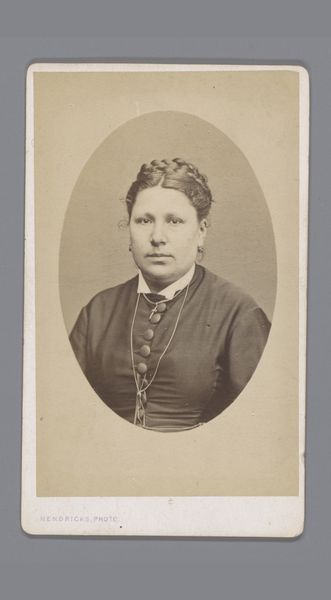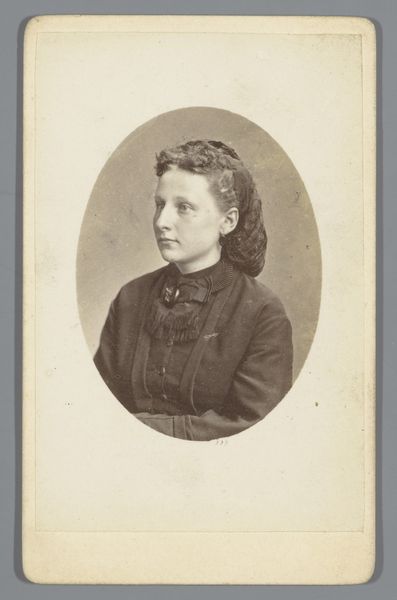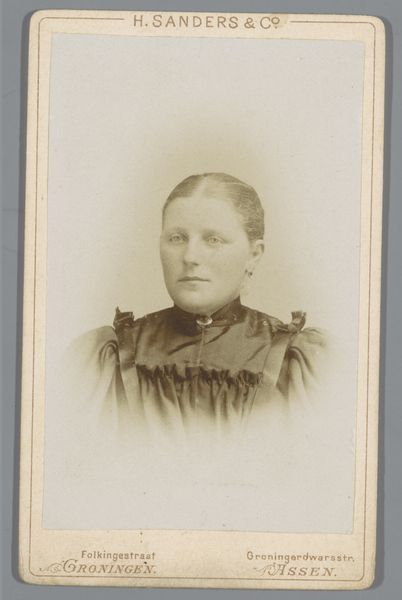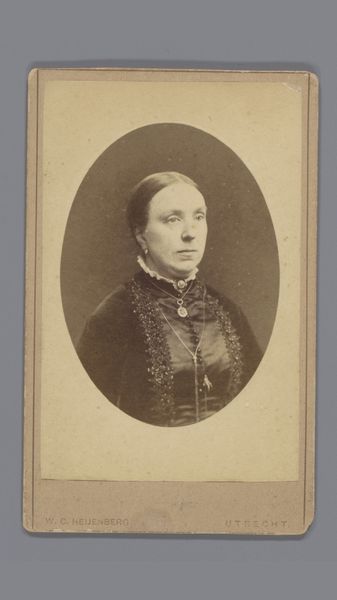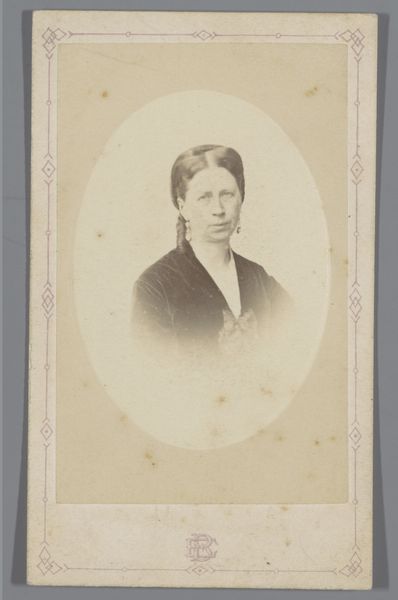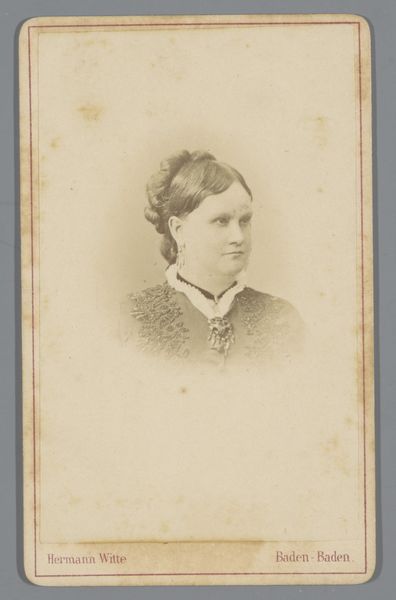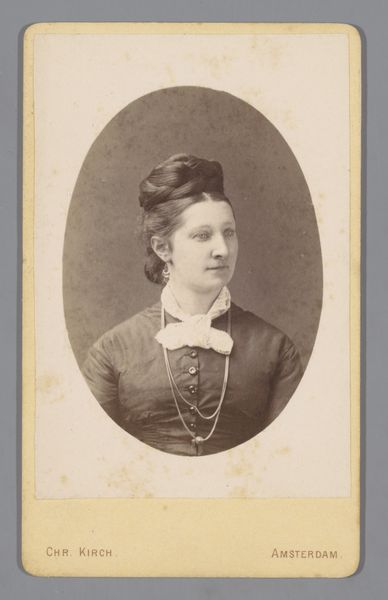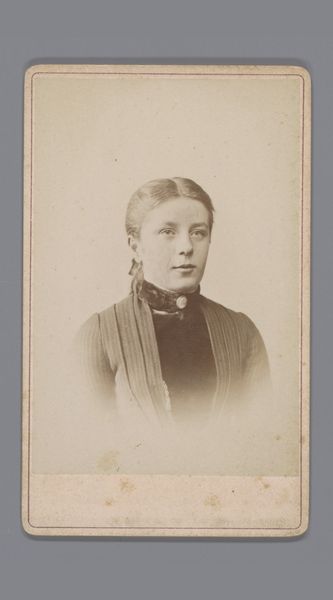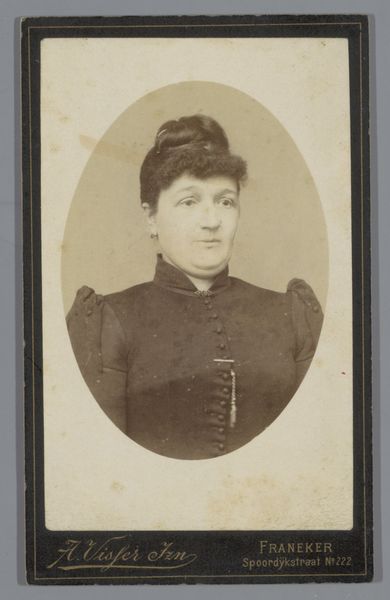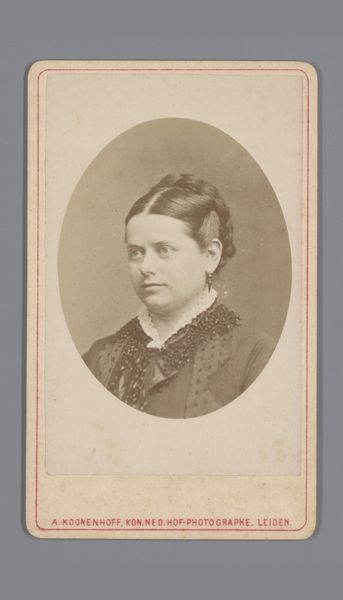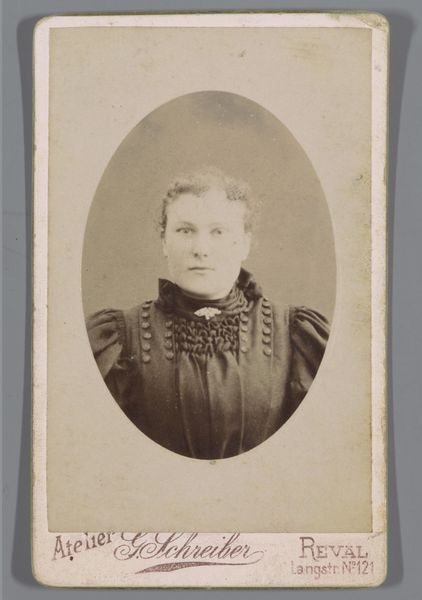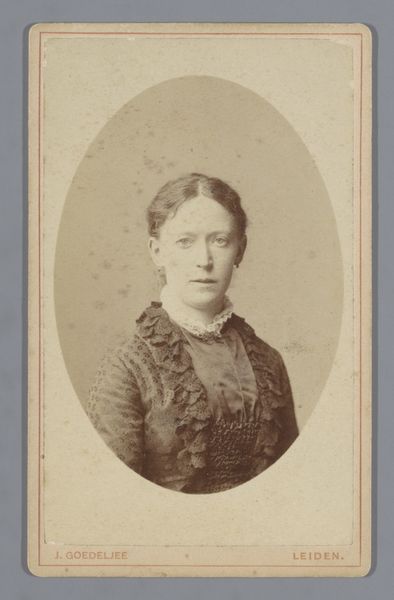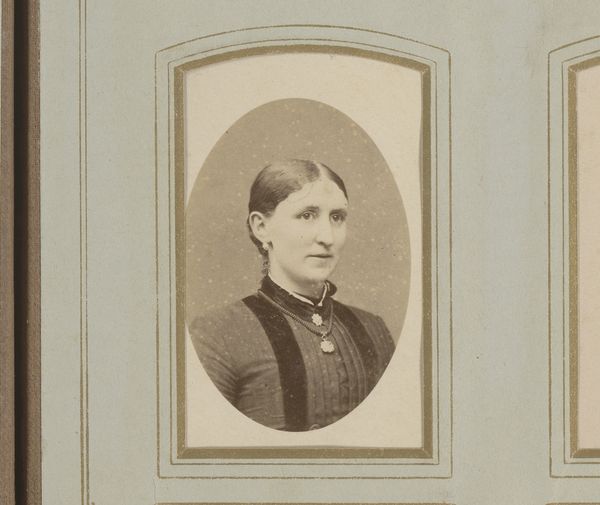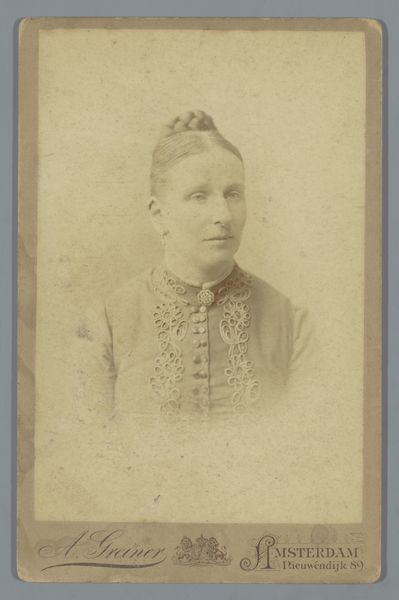
photography
#
photography
Dimensions: height 102 mm, width 63 mm
Copyright: Rijks Museum: Open Domain
Editor: Here we have a portrait, taken sometime between 1892 and 1893, of Jet van de Boom Eschauzier, by Abraham Koorenhoff. It appears to be a photograph. It has this sort of sepia tone, very formal. I find it difficult to ascertain what her position might have been in society. What do you see in this piece? Curator: It's crucial to consider the power dynamics inherent in portraiture, especially from this era. The controlled setting, the sitter's pose—these elements speak volumes about the subject's agency, or lack thereof. Can you tell me about how you're interpreting her gaze? Where does it seem to land? Editor: She’s looking, I think, directly at the camera, or perhaps just above it. It gives the impression of confidence but maybe it is also what was expected. Curator: Precisely. Photography at this time was often used to solidify social standing, but it could also function as a means of self-expression, of defying prescribed roles. Look at the plainness of her dress versus the small details and decorations: Is she adhering to or resisting prevailing gender norms through her presentation? Editor: That’s a good point. Her attire is quite modest, even subdued, yet she wears that striking brooch. Curator: Indeed! And what might that signify? Brooches at the time were used as signs of belonging. Editor: I hadn’t considered how even something like this portrait could be read in so many ways. I learned a lot about how context can completely shift your perception of a piece! Curator: It’s all about unveiling the silent narratives embedded within the visual, questioning the 'who,' 'how,' and 'why' of representation itself.
Comments
No comments
Be the first to comment and join the conversation on the ultimate creative platform.
